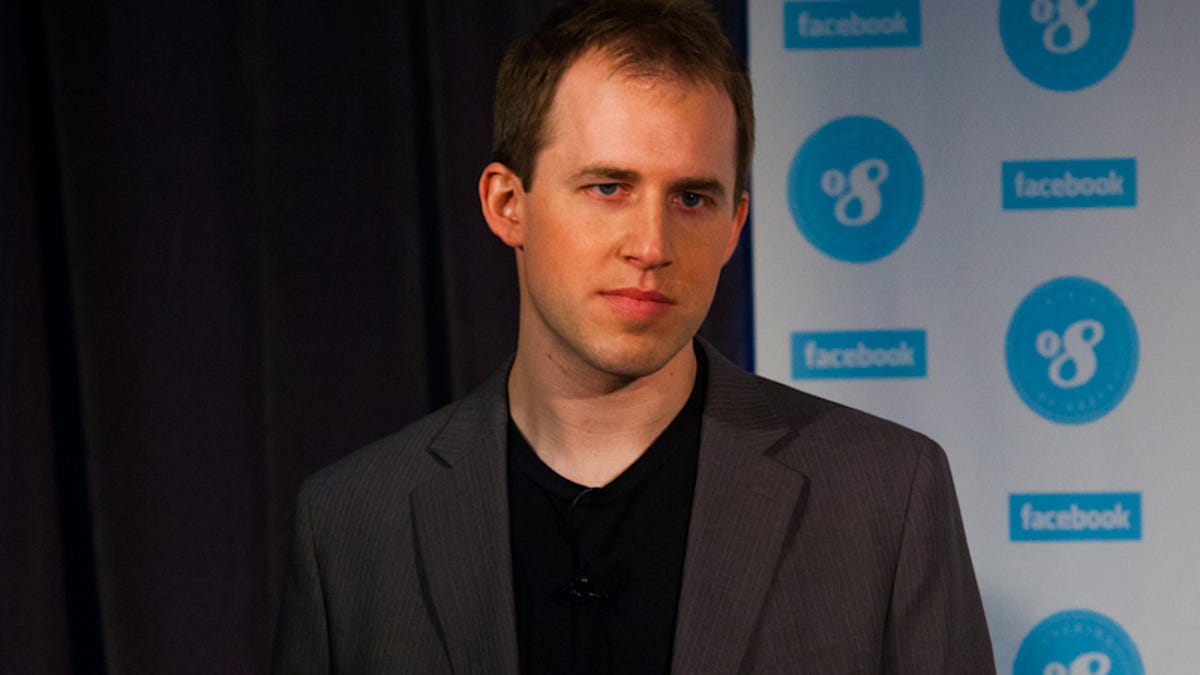Quip's Bret Taylor wants to build a Microsoft Office for mobile era
"My success scenario for the company is to do for tablets and phones what Microsoft Office did for the PC," says the former Facebook CTO.

Bret Taylor isn't just any startup CEO. He spent the last decade building consumer software used by hundreds of millions of people. He was the co-creator of Google Maps and FriendFeed, which was sold to Facebook. He then spent three years as Facebook's CTO before leaving to found a startup last year with Kevin Gibbs, the former technical lead on the Google App Engine team. Now the two are plotting to turn Quip, their fledgling word processor, into the Microsoft Office of the mobile age.
"Our goal is to create a productivity suite for the mobile era," Taylor said in an interview with CNET. "My success scenario for the company is to do for tablets and phones what Microsoft Office did for the PC. It's ambitious, but it's why I come to work every day. "
So far, Taylor and 12 fellow Quip team members have delivered a rudimentary word processor, which was designed from the ground up for mobile and collaborative usage. It's also surrounded by a horde of startups and established competitors. "My dad made a joke. He asked me what company isn't competing with you," Taylor said. Indeed, Quip is going up against giants that have a lot of firepower to squash a tiny startup.
Google Apps for Business reaches about 5 million companies and costs $50 per user per year. Microsoft is leveraging its massive Office franchise with Office 365, which is $60 per user per year for small businesses. Apple just launched its iWork suite for free for new systems. Quip costs $12 per month per user for up to 250 users. (A free version, without administrative features, is available for up to five users.)
In the shadow of these giants, Taylor believes that Quip has a shot at displacing the incumbents in selling a suite of mobile-first apps to businesses.
According to Taylor, Quip's advantage over competitors is that it is better at bridging online and offline usage. If Quip loses connectivity, it continues to function without interruption and automatically surfaces push notifications, comments, and edits when the connection is restored.
"Communications and collaboration on documents is underserved in word processors," Taylor said. "The interesting aspect of Quip is that it is designed to work on phones and tablets, as well as PCs, and like many products for these devices it tends to focus on push notifications integrated with the authoring process, real-time collaboration, and editing across devices." About 40 percent use Quip on multiple devices, he said.
Quip hopes to follow the success of messaging products, such as Twitter, which achieved rapid user adoption on mobile devices. "For the first time, something that doesn't depend on e-mail has really taken off. It illustrates how compelling mobile devices are and how they are circumventing older technology, and even exist independently of the previous generation of technology."
Taylor expects that enterprises will follow consumers in adopting technologies that upend the established order. "Enterprise tools have been stagnant. We have an opportunity to do something new and different that can keep us engaged for the next 10 to 20 years," Taylor said.
But Quip is still in its infancy, making its debut just three months ago. It's only available in 10 languages and on iOS and read-only for Android. "If you want to print a brochure, Quip would be deficient, but it's exceptional at documents such as press releases or term papers," he admitted.
Taylor and team are taking a step-by-step approach to building out their product and attracting more enterprise customers. A full Android version is slated to launch by the end of the year. In addition, the company plans to add more formatting options, fonts, templates, and administration features for larger organizations. Quip also will include some basic spreadsheet capabilities for tables.
"Because our main focus is mobile, we are prioritizing features that take advantage of the native capabilities of the devices," Taylor said. "After the first of the year, we will extend into other product areas. Over the long term, we expect to do something highly integrated -- from a product standpoint, we don't want users to need to decide up front if they want an image or a table. We are developing Quip as an integrated experience instead of separate apps for different features."
With $15 million in funding and founder track records of success, Quip's ambition to conquer the enterprise could follow in the footsteps of cloud computing pioneer Salesforce.com. It might help that Saleforce CEO and co-founder Marc Benioff is an investor, but it's still a long shot.

